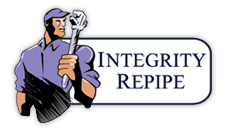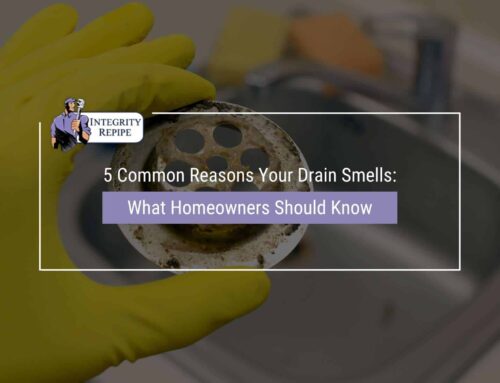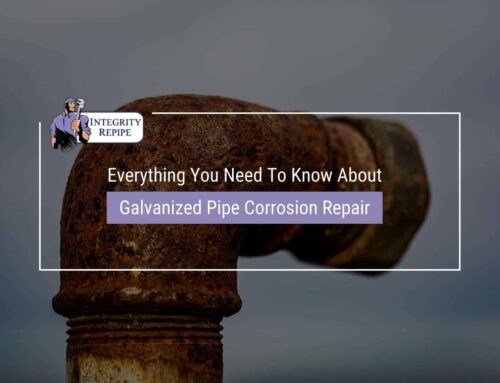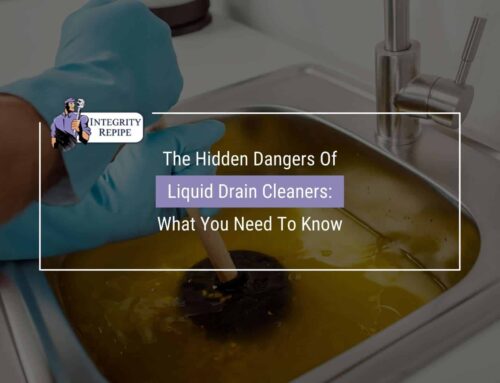Prepare Your Home or Business: How Low Temperatures Affect Pipes
Winter is coming! Beyond being an iconic phrase from a popular TV series, it’s also a reality. And with drastic temperature changes on the horizon, it’s best to prepare your home or business to face them. Even more so after USA Today reported that the 2024–2025 winter brought record snowfalls and extremely cold temperatures across the United States.
One issue that many people overlook is how low temperatures can affect pipes. This can lead to unexpected emergencies that you’ll need to deal with. But even better! You can learn how to prevent them! Below, we’ll explain everything you need to know.
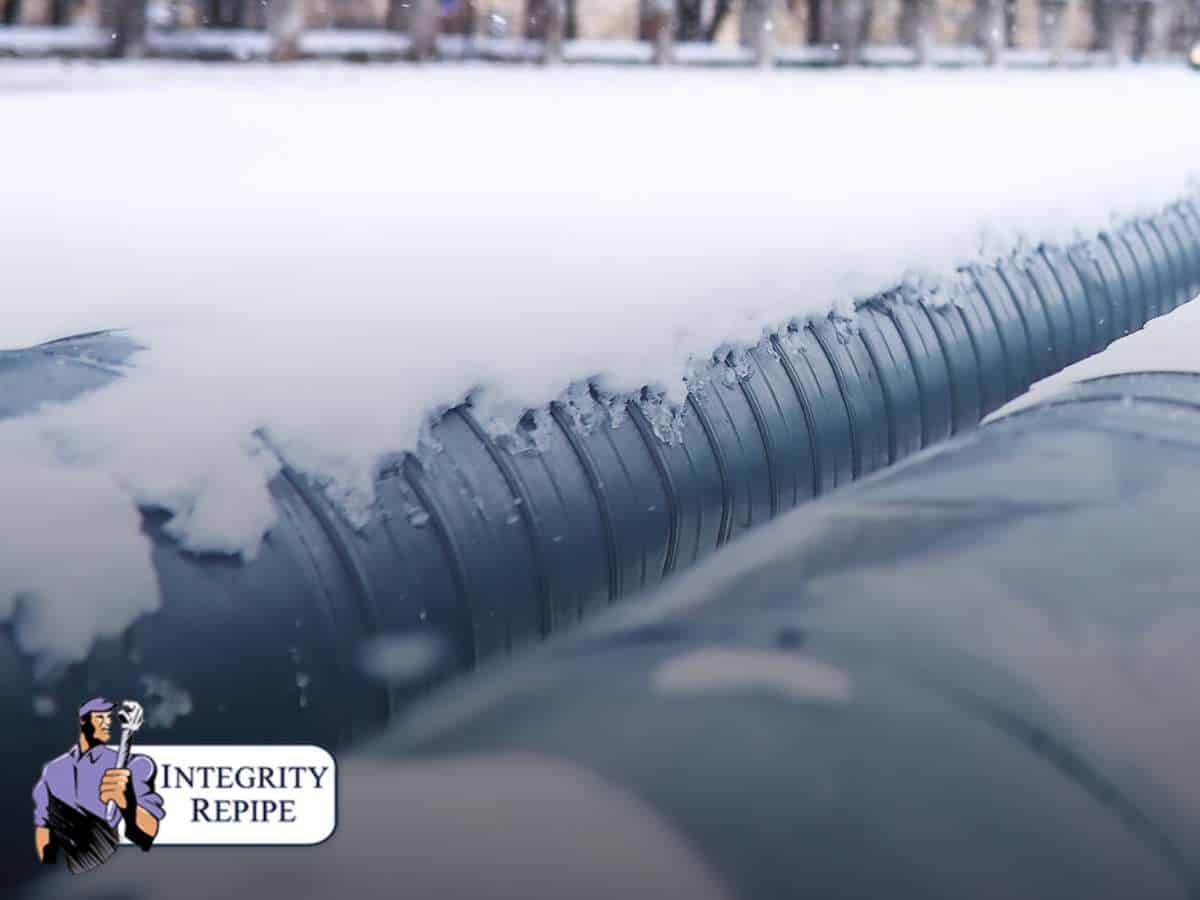
Why Winter Increases Plumbing Risks
Cold weather puts extra stress on plumbing systems. When water inside pipes freezes, it expands, creating pressure that can eventually cause cracks or even complete bursts. Even a small leak can result in serious water damage if left unchecked. For homeowners in the region, scheduling a repipe in California can help reinforce vulnerable pipes and prevent costly winter emergencies.
Also, during colder months, household demand on plumbing fixtures also increases. Families tend to take longer hot showers, run dishwashers more often, and rely on heating systems that can indirectly affect pipes. Water heaters must work harder to keep up, which can shorten their lifespan if they aren’t properly maintained.
These combined factors make your property especially vulnerable in winter, particularly in areas such as:
- Outdoor fixtures and garden spigots exposed to freezing air.
- Poorly insulated basements that trap cold temperatures.
- Unheated attics or crawl spaces where pipes are left unprotected.
- Plumbing lines running along exterior walls with little insulation.
Because of this, the risk of burst pipes, frozen faucets, sewer backups, and water heater failures is significantly higher during the winter season.
Common Winter Plumbing Emergencies
Being aware of the most frequent winter issues helps you spot problems early and act before they escalate:
Frozen Faucets
Frozen faucets can lead to cracked pipes if ignored. Outdoor spigots and fixtures located on exterior walls are most at risk. Look out for:
- Reduced or no water flow.
- Frost on exterior pipes.
- Strange noises when trying to turn on the faucet.
While you can thaw some frozen pipes with heat tape or warm towels, always exercise caution. Applying direct flames or high heat can damage the pipe and increase the risk of rupture.
Burst Pipes
A burst pipe can cause significant water damage within minutes. Once the water escapes, it can soak walls, floors, and insulation, creating the perfect environment for mold growth. For example, warning signs include:
- Sudden drops in water pressure.
- Unexplained puddles or damp spots.
- A spike in your water bill.
If you notice these issues, shutting off the main water supply is critical. From there, you’ll need professional help to replace the damaged section of pipe and restore proper flow. In many cases, a repipe repair may be required to fully resolve the issue.
Sewer Backups
Winter weather can also impact your sewer system. Blockages caused by frozen lines or heavy holiday usage often result in wastewater backing up into your home. For instance, signs of trouble include:
- Slow-draining sinks and tubs.
- Gurgling noises in toilets.
- Foul odors coming from drains.
Because sewer backups can introduce contaminated water into your home, it’s best to contact a plumber immediately if you suspect this issue.
Water Heater Strain
When the temperature drops, your household’s demand for hot water increases. Water heaters working overtime may develop leaks, reduced efficiency, or total failure.
Keep an eye out for inconsistent hot water, unusual noises, or puddles near the unit. Routine maintenance, such as flushing the tank and checking the pressure valve, can help prevent these issues before they escalate.
What To Do During a Plumbing Emergency
Quick action is the key to limiting damage and keeping your home safe when problems strike:
Shut Off The Main Water Supply
Your first step should always be to locate and turn off the main water valve. Doing this stops water flow and reduces the risk of additional flooding or damage. Make sure every family member knows where this valve is and how to use it.
Protect Your Home From Water Damage
Once the water is off, try to contain the damage. Use buckets, towels, or a wet/dry vacuum to remove standing water. Move valuables away from the affected area, and keep electrical appliances clear of moisture. Safety should always be your top priority.
Cut Power If Necessary
If flooding occurs near electrical systems, switch off the power to that section of the home. This step helps prevent dangerous electrical shocks or potential fires.
Call a Professional Plumber
While temporary fixes can help, most winter plumbing emergencies require expert attention. Whether it’s thawing frozen pipes, replacing damaged fixtures, or handling a full repiping, trained professionals have the tools and knowledge to get the job done safely and effectively.
Preventing Winter Plumbing Emergencies
With a few smart precautions, you can lower the risk of costly plumbing issues during the colder months:
Insulate Pipes
Pipe insulation is one of the simplest and most effective preventative measures. Foam sleeves, heat tape, or even DIY solutions like wrapping pipes with towels can make a big difference. Focus on basements, garages, and other unheated spaces.
Maintain Indoor Temperatures
Even if you plan to be away, keep your thermostat set above 55°F (13°C). A consistent indoor temperature helps prevent freezing and ensures water keeps flowing.
Regular Maintenance Checks
Schedule annual plumbing inspections before winter begins. A professional can identify small leaks, corroded fittings, or outdated systems that may fail under cold stress. For older homes, a full upgrade with a repiping plumber may be the safest long-term solution.
Install Leak Detection Devices
Modern leak detection technology can alert you to hidden leaks or sudden water flow before major damage occurs. Some systems can even shut off your water supply automatically, providing peace of mind when you’re not home.
Care For Your Drains
Avoid pouring grease, oils, or other clog-inducing substances down your drains during the holidays. Use drain covers to trap debris, and consider scheduling a professional cleaning before peak winter usage.
Why Professional Help Matters
Attempting to fix a burst pipe or a frozen sewer line on your own can be risky. Plumbing systems are complex, and improper repairs often make the problem worse. Hiring a licensed professional ensures the work is done correctly, efficiently, and up to code.
Working with a reliable repiping company offers long-term advantages, especially for older homes with outdated or deteriorating systems. For example, professional repiping can:
- Prevent recurring plumbing emergencies.
- Improve overall water quality.
- Restore strong and consistent water pressure.
- Lower monthly utility bills by reducing leaks and inefficiencies.
Relying on experts not only saves you money in the long run but also gives you peace of mind knowing your plumbing system is safe and built to last.
Protect Your Plumbing Before It’s Too Late
Winter plumbing emergencies can feel overwhelming, but preparation and quick action go a long way. Most importantly, knowing when to call a professional ensures that your plumbing system remains safe and reliable throughout the coldest months.
At Integrity Repipe, we bring over 35 years of expertise to every project, specializing in California repiping plumbing services and emergency plumbing solutions. Don’t wait until a small problem turns into a disaster. Contact us!
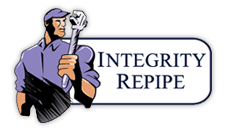
Published by – Integrity Repipe, Inc
Email: [email protected]
Website: www.integrityrepipe.com
Mission Viejo, CA
27281 Las Ramblas, Suite 200
Mission Viejo, CA 92691
Phone: 877-473-7473
San Clemente, CA
927 Calle Negocio Suite O
San Clemente, CA 92673
Phone: 949-397-2404
Long Beach, CA
2201 N Lakewood Blvd, Ste D #297
Long Beach, CA 90815
Phone: 562-362-5040
Chula Vista, CA
591 Telegraph Canyon Road
Chula Vista, CA 91910
Phone: 619-313-5744
Ladera Ranch, CA
27762 Antonio Parkway L1
Ladera Ranch, CA 92694
Phone: 949-397-2795
Lakeside, CA
8337 Winter Gardens Boulevard
Lakeside, CA 92040
Phone: 619-494-3507
Aliso Viejo, CA
27068 La Paz Rd #771
Aliso Viejo, CA 92656
Phone: 949-449-1142
Oceanside, CA
1759 Oceanside Blvd C,
Oceanside, CA 92054
Phone: 442-300-3057
Porter Ranch, CA
19360 Rinaldi
Porter Ranch, CA 91326
Phone: 818-630-9265
